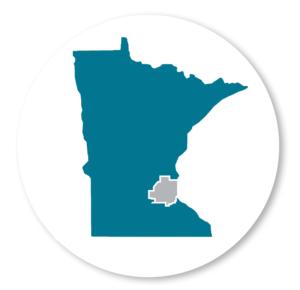

The Secure Facilities Interpreter Recruitment and Retention Program identifies areas where interpreters need support to prevent burn-out/fatigue and addresses the unique challenges posed by working in secured facilities. Examples of these places include acute healthcare treatment facilities and jails/prison.
 M2E is a program designed to improve communication access across Greater Minnesota! We aim to connect our Deaf and hearing mentors with MN interpreters who want to improve their skills to excel in the realm of community interpreting.
M2E is a program designed to improve communication access across Greater Minnesota! We aim to connect our Deaf and hearing mentors with MN interpreters who want to improve their skills to excel in the realm of community interpreting.
This program is offered FREE to non-certified interpreters who reside in Greater MN!
Participants must be eligible for the CASLI Generalist Knowledge Exam to apply.
This program provides up to $400 for interpreters to attend in-depth learning opportunities and workshops that would otherwise be inaccessible.
Non-certified interpreters living in Greater Minnesota may also request support for travel costs in order to take exams. This is in recognition of the disparate impact geographic distance has on the costs associated with becoming certified.
We are excited to offer an exciting new program for Greater MN interpreters interested in healthcare interpreting.
If you are a nationally certified interpreter with little to no healthcare interpreting experience, live in Greater MN (or meet our new eligibility requirements), this program is for you!
Have you ever experienced leaving a job not feeling good about what happened? Interpreters often work alone, with no one to provide guidance or feedback. How do interpreters develop their best practices and ethical standards if they don’t talk about it with their peers? Supervision.
Supervision, also known as case conferencing, is a way to reflect on our work, sometimes called case conferencing. It is an intentional professional practice between trained supervisors and practitioner. It provides a way to think about our work to promote ethical and competent services to the consumers we serve.
We offer online trainings!
Sign up for our mailing list! Keep your eyes peeled for information about these programs.
Other programs available FREE to interpreters living or working in Greater MN:
All above Greater MN programs are provided by ASLIS and supported by grant funding from the Minnesota Department of Human Services: Deaf and Hard of Hearing Services Division.
